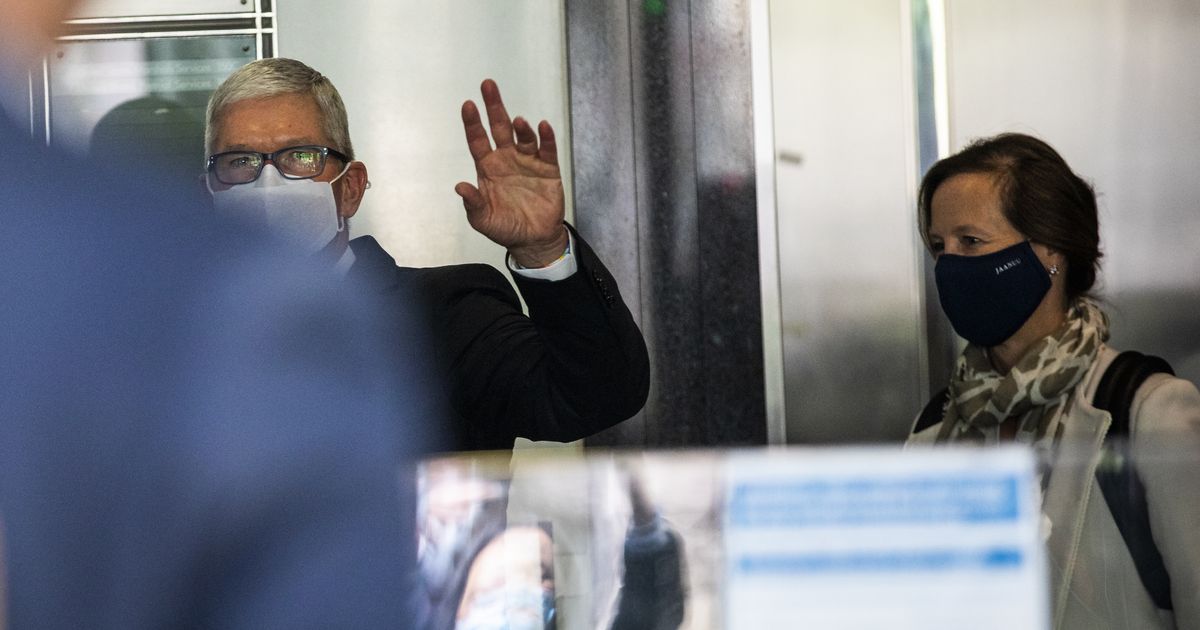
Apple CEO Tim Cook testified on Friday in a trial over whether Apple is abusing its market power, and the judge did not come to play.
Cook appeared in court in person and answered questions from Apple’s lawyers, attorneys for Epic Games — the maker of the video game Fortnite, which is suing Apple — and U.S. District Court Judge Yvonne Gonzalez Rogers.
Cook spent much of his roughly five hours on the witness stand defending his company’s policies, which require that apps meet certain guidelines set by Apple in order to be made available on the App Store — the only way iOS users can download an app. Epic wants to be able to run its own app store on the iPhone, partially because they’d like to avoid the up to 30% commissions Apple takes on App Store transactions.
Cook’s time on the stand rounded out a three-week-long trial that will end with Judge Gonzalez Rogers decision on if Apple has too much power, or if it’s just participating in some friendly competition, but we won’t get that answer today.
Although Cook was a fascinating witness, at one point saying on record that he simply is “not a gamer,” the real star of Friday’s show was Judge Gonzalez Rogers.
Judge Gonzalez Rogers absolutely came for Cook. She focused largely on how games make up the vast majority of transactions on Apple’s App store. She said Apple created a “lucrative” system that is “a choice of a model,” not something Apple had to do in order to serve their customers, and contrasted how Apple treats gaming apps to how it treats banking apps.
“You don’t charge Wells Fargo or Bank of America, right?” Judge Gonzalez Rogers said. “But you’re charging gamers to subsidize Wells Fargo.”
In response, Cook said: “In the gamers example, they’re transacting on our platform.”
“People are doing lots of things on your platform,” the judge said. Then, she went after Apple’s new Small Business Program, a program introduced in November in which Apple reduced App Store commission from 30% to 15% for small businesses earning up to $1 million per year, according to Apple’s website. She said the program “really wasn’t the result of competition. That seemed to be a result of the pressure you’re feeling from investigation [and] lawsuits, not competition.”
“It was the result of feeling like we should do something from a COVID point of view, and then electing instead of doing something temporary to do something permanent,” Cook said in response.
“It wasn’t competition,” the Judge said.
And the judge wasn’t done. Gonzalez Rogers then turned to a survey that showed 39% of all Apple developers are dissatisfied.
“It doesn’t seem you feel any pressure or competition to change the way that you act to address the concerns of developers,” she said. “You don’t recall seeing any other surveys or business records showing that you routinely conduct surveys?”
Cook said he didn’t know but that another executive, Phil Schiller, might. Gonzalez Rogers asked if he, as CEO, received reports on the satisfaction of his developers. Cook simply answered that he does not.
And just like that, the testimony went into a closed session for the remainder of Cook’s time on the stand, meaning the media was kicked out.
